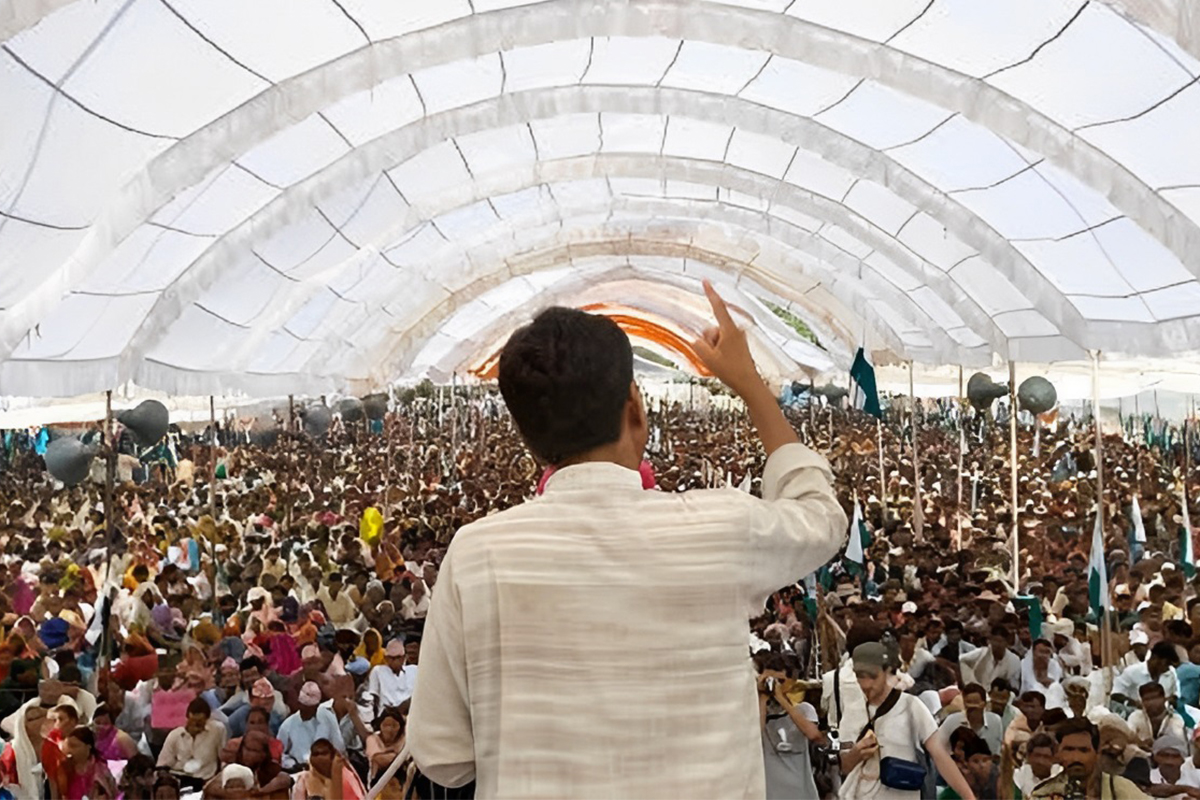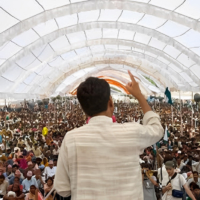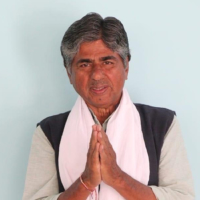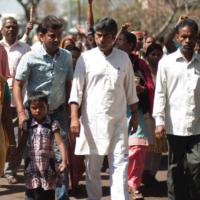This year, the winner of the 40th Niwano Peace Prize is Rajagopal P. V. of India, the founding president of Ekta Parishad, in recognition of his efforts to establish justice and peace. He is known to have dedicated himself to the poorest and most marginalized of his country, through peaceful and nonviolent methods, and to have struggled for recognition of equal human dignity and equal rights for every man and woman, irrespective of caste or gender. These accomplishments inspired great admiration among the members of the Niwano Peace Prize Committee, which consists of nine religious leaders from various parts of the world.
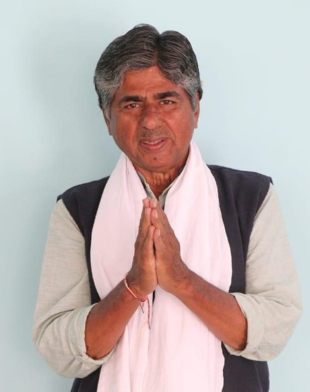
“To be frank I had difficulty to believe that I was the one selected to receive this prestigious award. I accept it with humility,” Rajagopal, who uses only his first name in public, wrote in his acceptance letter. “In receiving this prize, I believe it is my good fortune to have been born in the same geographical area as the birthplaces of Gautum Buddha and Mahatma Gandhi.” He explained that while the idea of nonviolence may sound commonplace in Asia, where Buddha’s influence has been widely felt, in many parts of the world people have not seriously embraced the idea of nonviolence.
The prize winner’s faith in nonviolence has helped him carry out various national actions, set up many institutions and play a role in civil society both in India and globally, he said. “Experience has also taught me that dealing with structural violence like poverty, oppression and corruption can be equal to, or more demanding than, confronting direct violence.”
Land reform
“His particular accomplishments that garner the highest esteem include negotiating the surrender and facilitating the rehabilitation of gangs, the education of young people in the service of the poor, and, well aware that the primary needs of the poor are water, land and forests, his commitment to care for the environment,” said Flaminia Giovanelli, the chairperson of the committee.
Rajagopal’s work for justice is carried forward through dialogue with institutions with a view to counteracting the phenomenon of land-grabbing, and achieving through appropriate land reform the redistribution and assignment of land ownership, she added.
To avoid undue emphasis on any particular religion or region, every year the Niwano Peace Foundation solicits nominations from people of recognized intellectual and religious stature around the world. In the nomination process, some 600 people and organizations collectively representing 125 countries and many religions are asked to propose candidates.
“Rajagopal uses the Gandhian technique of marches for promoting world peace. … He has trained many young men and women in nonviolent social practices,” said committee member Ranjana Mukhopadhyaya. “His organization is also dedicated to improving the livelihoods of poor people and farmers in India. He is also addressing the problems of climate change and its impact on the lives of the people, especially the marginalized ones. A Gandhian like Rajagopal is deserving of the Niwano Peace Prize.”
The presentation ceremony will take place in Tokyo, Japan, on Thursday, May 11. In addition to an award certificate, Rajagopal will receive a medal and ¥20 million.
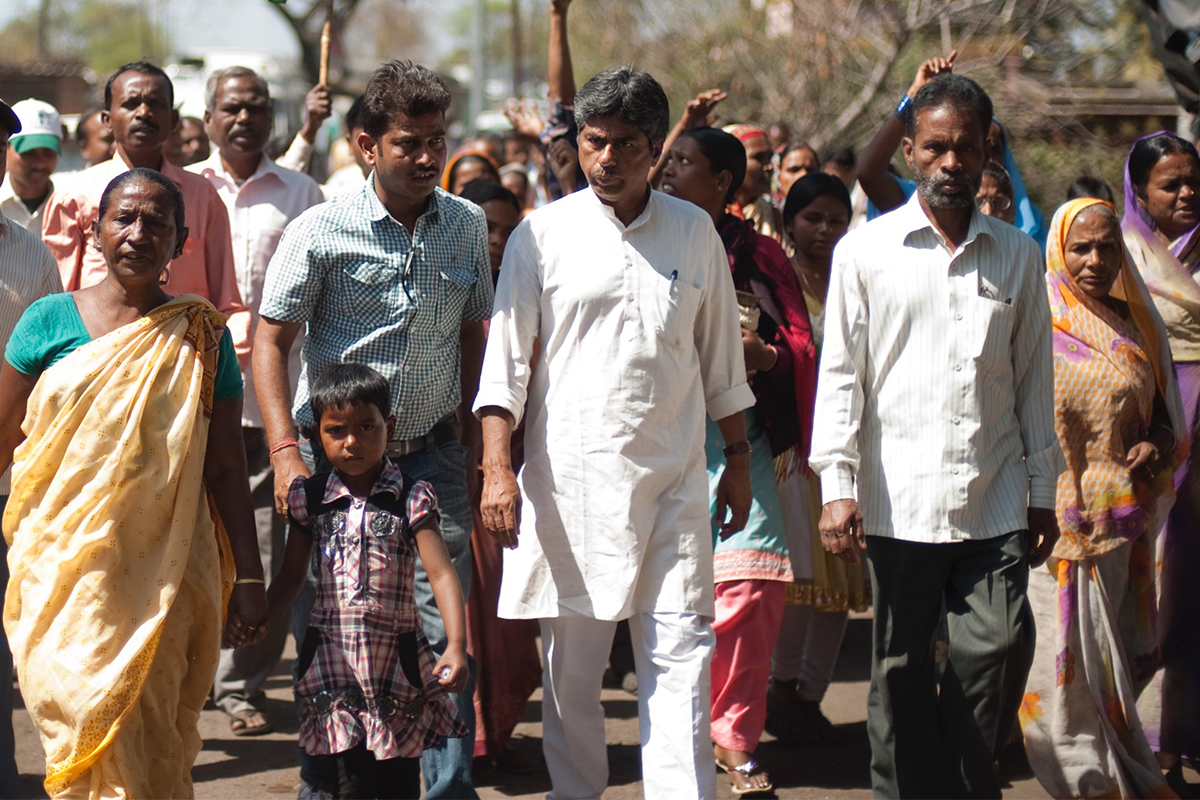
Gandhian peacemaker
Rajagopal was born in 1948 in Kerala state as the child of a Gandhian family. “He uses only his first name in public to avoid being associated with the phenomenon of caste, which is a clear sign of his vision of human equality,” Giovanelli pointed out.
What he wanted to do became clear when he moved north to the Chambal district of Madhya Pradesh state in the 1970s. There he found a population suffering from endemic violence, the consequence of injustices and wrongs that had resulted in the growth of dacoits (gangs). Along with other senior Gandhian leaders, he became a peacemaker, obtaining the surrender and even the rehabilitation of the dacoits. This courageous initiative paved the way for another of great significance that developed during the 1980s: the organization of regional and national youth training programs to promote the concept of nonviolent action for social change.
His commitment to justice and peace over this 20-year period culminated in the establishment of the Ekta Parishad (Unity Forum), an umbrella organization with the mission of carrying out nonviolent activism to secure land and livelihood rights for marginalized communities. His social activism has achieved greater national and international visibility through successful land-rights marches with the participation of thousands of people. Overall, this movement, aided by collaboration with other groups, secured land rights for nearly 500,000 families, negotiated the forest rights act from 2006 to 2007, organized highly attended marches in 2007 and 2012, and led efforts for a new land reform policy that was agreed to by the central government and the state governments of Madhya Pradesh and Chhattisgarh.
Peace and nonviolence
Rajagopal’s roots in Gandhian spirituality and philosophy made it natural for him to serve within institutions that maintain the Mahatma’s memory by applying his principles. In 1972 he was secretary of the Mahatma Gandhi Seva Ashram. In 2005 he was elected vice chairman of the Gandhi Peace Foundation. Today he continues to be the managing trustee of the International Gandhian Initiative for Nonviolence and Peace.
His nonviolent social action has led him to be a man who engages in dialogue with institutions, holding official positions such as enquiry commissioner of the Supreme Court on Bonded Labour, and member of the National Council for Land Reform. His goal is the creation of a ministry and a state budget for peace and nonviolence, saying, “If you are spending so much money on war, the military and police, why can’t you spend some money on peace and nonviolence?”
The interreligious essence of Rajagopal’s activism is in bringing together the poor, united in nonviolent protest for their rights, without distinction of religion. The movement’s protest demonstrations take place side by side with peasants of all religious beliefs. The movement has since transcended the borders of India. He wishes to have the United Nations as an ally in his quest for what he calls “a nonviolent economy.”
“His activism for peace and justice based on spiritual practice and his focus on young people who are the leaders of the future, can change the present violent nature of this world,” committee member Nokuzola Mndende said. “His extra strength of not only concentration on his country but spreading his teachings to others globally in the promotion of justice and nonviolence can heal the world.”
Annual award spotlights efforts by individuals, organizations to improve livelihoods for all
The Niwano Peace Foundation established the Niwano Peace Prize to honor and encourage individuals and organizations that have contributed significantly to interreligious cooperation, thereby furthering the cause of world peace, and to make their achievements known as widely as possible.
The Foundation hopes in this way both to enhance interreligious understanding and cooperation and to encourage the emergence of still more persons devoted to working for world peace.
The prize is named in honor of the founder and first president of the lay Buddhist organization Rissho Kosei-kai, Nikkyo Niwano. For Niwano, peace was not merely an absence of conflict among nations, but a dynamic harmony in the inner lives of people as well as in our communities, nations and the world.
Niwano Peace Prize recipients
2022 Michael Lapsley
2021 Shih Chao-hwei
2020 Pomnyun
2019 John Paul Lederach
2018 Adyan Foundation
2017 Munib A. Younan
2016 Centre for Peace Building and Reconciliation
2015 Esther Abimiku Ibanga
2014 Dena Merriam
2013 Gunnar Stalsett
2012 Rosalina Tuyuc Velasquez
2011 Sulak Sivaraksa
2010 Ela Ramesh Bhatt
2009 Gideon Baguma Byamugisha
2008 Prince El Hassan bin Talal
2007 Cheng Yen
2006 Rabbis for Human Rights
2005 Hans Kung
2004 The Acholi Religious LeadersÅf Peace Initiative
2003 Priscilla Elworthy
2002 Samuel Ruiz Garcia
2001 Elias Chacour
2000 Kang Won-yong
1999 The Community of SantÅfEgidio
1998 Maha Ghosananda
1997 The Corrymeela Community
1996 Marii K. Hasegawa
1995 M. Aram
1994 Paulo Evaristo Arns
1993 Neve Shalom/Wahat al-Salam
1992 A.T. Ariyaratne
1991 Hildegard Goss-Mayr
1990 Norman Cousins
1989 Etai Yamada
1987 The World Muslim Congress
1986 Philip A. Potter
1985 Zhao Puchu
1984 Homer A. Jack
1983 Helder P. Camara



